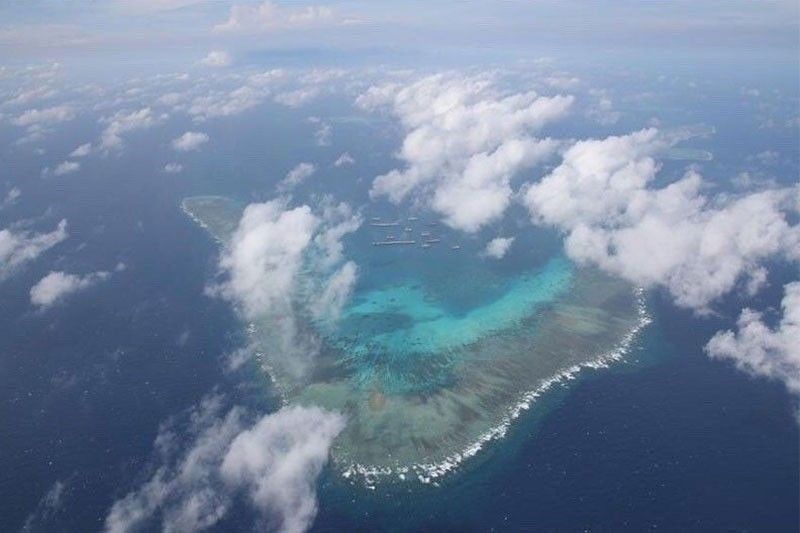‘International alliances needed to enforce West Philippine Sea ruling’

MANILA, Philippines — The Philippines should enlist the support and cooperation of its international allies in order to fully enforce the 2016 ruling of the Permanent Court of Arbitration (PCA) invalidating China’s vast territorial claims in the South China Sea.
“The PCA legally transformed our maritime claims into a territorial right. Therefore, it is clear that the West Philippine Sea is ours,” said Professor Victor Andres Manhit at the recent international forum organized by The Stratbase Institute.
But in order to enforce the ruling, local and international experts gathered at the forum to mark the sixth anniversary of the arbitral award to the Philippines agreed that the country needs critical global alliances.
“With our collective will and effort, we must not allow any blatant disregard of the United Nations Convention on the Law of the Sea (UNCLOS) or the rule of law by any state,” said Manhit, president of Stratbase.
“The Philippines has every right to exercise sovereignty over its maritime territory. Our maritime vessels have the right to patrol our waters without being threatened. Our scientists have the right to conduct research in the West Philippine Sea without being closely observed. Our fishermen have the right to fish in the waters safely and without fear,” he added.
The arbitral court ruled that China’s claims on the disputed territory, based on its so-called nine-dash line, had no basis in international law.
However, the previous administration was seen to have largely ignored the ruling as it pivoted toward China and pursued what former president Rodrigo Duterte dubbed as an “independent foreign policy.”
During the forum, international participants emphasized the need to respect not only the PCA decision but the rules-based international order governing relations between and among countries.
Murray Hiebert, senior associate of the Center for Strategic and International Studies and director for Research for BowerGroup Asia, said the US now has the opportunity to re-energize an alliance that had become more than a little wobbly under Duterte.
Hiebert, who has published a book called “Under Beijing’s Shadow: Southeast Asia’s China Challenge,” said: “The first thing they ought to do is invite Marcos to come to Washington… This could provide a great opportunity for the US and the Philippines to reboot by inviting the new president to Washington as soon as possible.”
He said the US and the Philippines should work together to protect the rights of the Philippines in the South China Sea, including sovereignty, hydrocarbons and fish.
Lisa Curtis, director of the Indo-Pacific Security Program and senior fellow at the Center for a New American Society, agreed that maritime issues are critical to the United States-Philippine alliance.
“We have a mutual interest in ensuring that nations in the region maintain their sovereignty and independence. Standing up to China’s maritime aggression and taking steps to push back against it are necessary to maintain a rules-based international order. And ultimately, this is the best way we can avoid any conflict,” Curtis said.
Dr. Yusuke Takagi, associate professor of the National Graduate Institute for Policy Studies, said bilateral cooperation between the Philippines and Japan, specifically in the areas of maritime security and safety, has been on the right track for many years, with Mindanao as focal point.
He said that aside from bilateral relations, it is also important to think about Philippine relations in the Indo-Pacific.
John Blaxland, a professor of International Security and Intelligence Studies at Australia National University, said the Association of Southeast Asian Nations has limited ability to deter, and AUKUS sees the bolstering of the US’s commitment to the defense of Australia and, by implication, of the region.
He acknowledged the overwhelming amount of overlap of interest between Australia and the Philippines, including their interests and enemies, noting that “we can’t just sit on the fence. We have interests to defend. Our interests are being challenged. Our deterrents need to be bolstered. Our weakness invites adventurism.”
In closing the forum, Manhit cited a recent Pulse Asia survey commissioned by Stratbase showing that 89 percent of Filipinos want Marcos Jr. to assert the country’s rights in the West Philippine Sea; and 90 percent agree that the new administration must invest in the capability of the Philippine Navy and the Philippine Coast Guard.
- Latest
- Trending






























